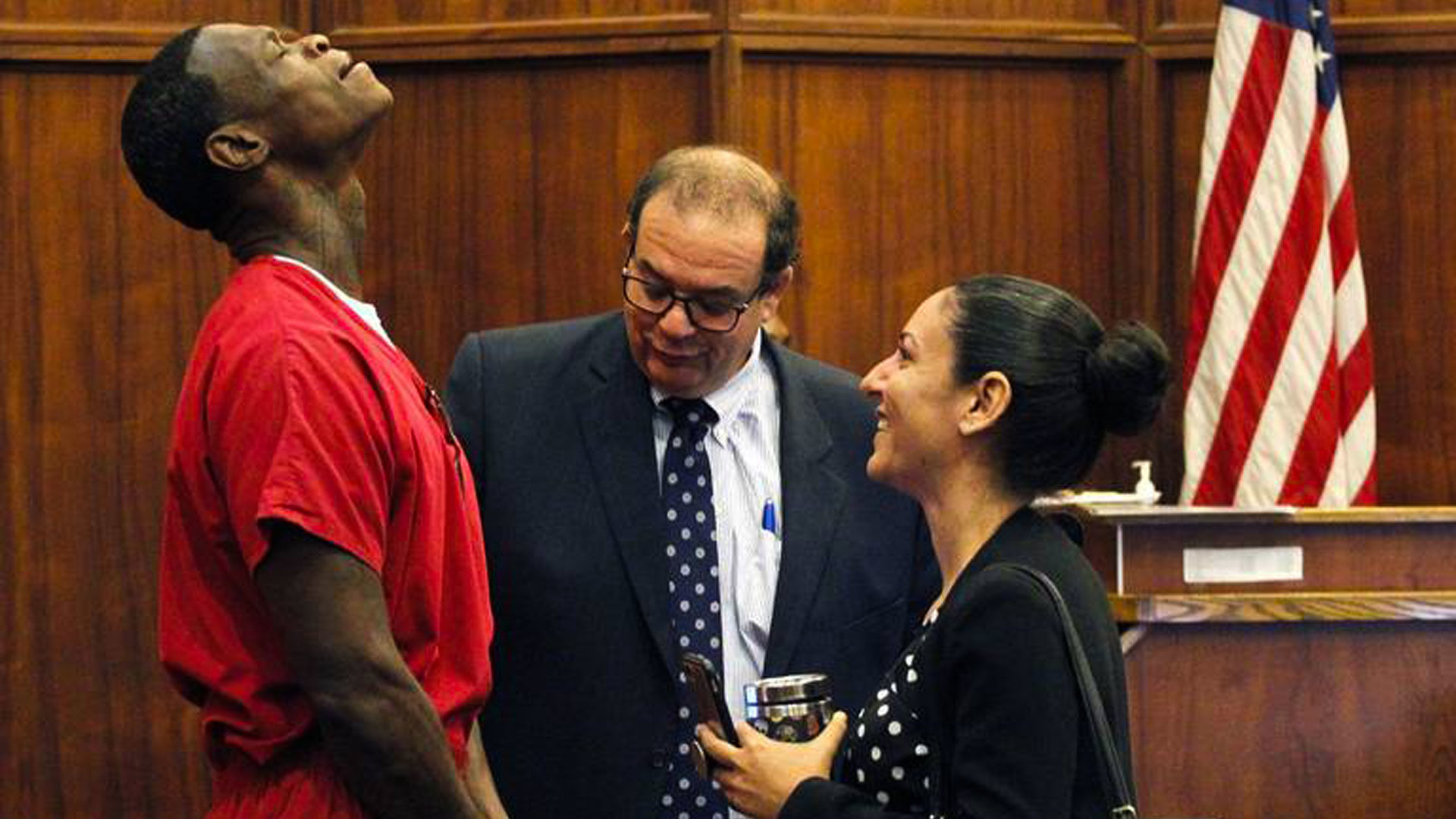One month after a judge ordered a new trial and cast doubt on the evidence against him for murder, Andre Gonzalez is a free man.
Prosecutors on Tuesday dropped the case against Gonzalez, who spent 12 years behind bars for a murder outside a North Miami-Dade nightclub, a killing his defense lawyers said he did not commit. Gonzalez, who was also known in court records by the alias Tony Brown, walked out of jail just before noon.
“The sun and the breeze just felt so wonderful, knowing I’m walking on real pavement,” Gonzalez said of walking out of jail. “It’s been such a long time and hard struggle. It’s a wonderful feeling right now.”
Gonzalez, 46, said he plans to reunite with his four children and his fiancée. He isn’t sure what his future holds. “I’m just trying to let it all sink in,” he said.
His freedom came thanks to students from the Medill Justice Project at Northwestern University, who interviewed a prison inmate that admitted Gonzalez was not the killer. The inmate, Arnold Clark, later testified in court that his friend, a DJ at the club that night, was the actual killer, not Gonzalez.
In September, Miami-Dade Circuit Judge Miguel de la O agreed with the defense, casting doubt on the state’s key eyewitness and the significance of DNA found on a cap found at the crime scene. He ordered the conviction reversed — and that Gonzalez is given a new trial.
“[Gonzalez] presented credible, admissible evidence demonstrating that the crimes of which he was convicted may very well have been committed by another,” De la O wrote in his order.
The Miami-Dade State Attorney’s Office, however, “disagrees with this conclusion” and says the judge ignored key evidence — including that the supposed real gunman “was too short to be the assailant,” according to a final memo released on Tuesday.
But prosecutors decided to drop the case because Michael Morris, the surviving victim, and key eyewitness, is in a “very fragile state and questions his ability to withstand another trial.” Also, the victim’s DNA has long been destroyed, meaning it can’t be tested on items that might refute Clark’s story, prosecutor Chiaka Ihekwaba wrote in the memo.
“The state of Florida, in no way, believes that this defendant is innocent of the crime,” she wrote.
At Gonzalez’s original trial, prosecutors maintained that he was the one who shot and killed Nigel Whatley during a robbery and scuffle outside the Players Club in October 2005. A surviving victim, Michael Morris, who was wounded in the robbery, identified Gonzalez as the attacker.
But Morris told police he was only “60 percent” certain the attacker was Gonzalez, who also went by the name Andre Gonzalez. Defense lawyers said Miami-Dade police homicide detectives mishandled the photo lineup when interviewing the surviving victim.
Other key evidence was Gonzalez’s DNA, which was discovered on a black skull cap discarded near Whatley’s body, a cap Morris later claimed the gunman wore during the robbery. During the trial, Gonzalez’s girlfriend testified she was with him at the club that night but took no part in the killing.
His defense lawyers suggested that Gonzalez dropped his cap in the parking lot that night, and detectives planted the idea of the gunman wearing the cap in the mind of the eyewitness. Judge de la O agreed, saying Morris never mentioned the gunman wore a cap until nine months after the shooting.
Jurors in 2010 originally found Gonzalez guilty of second-degree murder, attempted murder and armed robbery. He was sentenced to life in prison. Afterward, a Miami-Dade judge granted a request for a new trial, but the decision later was overturned by an appeals court.
As for Clark, he said he initially refused to testify at the time of the crime for fear of reprisals from the nightclub, or the real killer.
News Source: Miami Herald

